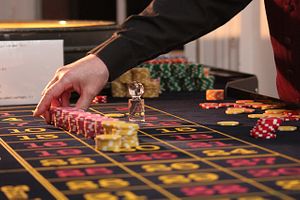In December 2016, the Japanese Diet passed the integrated resorts promotion law, the first in a two-step legislative process to legalize casinos in Japan. Japan passed the promotion law shortly after the ruling Liberal Democratic Party (LDP) – the party of Prime Minister Shinzo Abe — won enough seats in the July 2016 Upper House election to no longer be reliant on their junior coalition partner, the Komeito. This Upper House election was significant for casino-related developments because it allowed the LDP to bypass Komeito, a political party backed by an influential Buddhist group that opposes gambling on principle.
With the goal to open the first integrated resorts in 2022 or 2023, Abe’s vision, when this legislation first passed, was to use casinos as the cure to the post-Olympics “hangover” – the dip in economic activity that many host nations of the Olympics suffer. Since then, the casinos initiative has pressed forward under Abe’s leadership.
Media coverage and risk analysts covering the issue at the time anticipated the dangers of organized crime getting involved in newly opened casinos. Media outlets may have overblown the risks of organized crime’s overt involvement. However, more soberingly, risk analysts were seriously concerned about the business opportunity that newly legalized casinos might provide to organized crime – such as in contracts for the physical construction of the casinos that could be won by subcontractors or sub-subcontractors controlled by organized crime.
Interestingly, these anticipated risks have yet to materialize in a publicly noticeable way. However, an important unanticipated risk has manifested itself in recent weeks as casino-related political corruption has come to dominate the headlines. A Chinese company has been under fire for giving bribes to at least six Japanese politicians. Such bribes would be illegal under the Political Fund Control Law, which bans donations from foreigners or foreign companies. Apparently, legalizing casinos not only provided an opportunity for the involvement of organized crime, but also the opportunity for foreign actors to get involved in corruption.
As the casino-related bribery scandal continues to grow, last Monday, Mikio Shimoji became the first politician to acknowledge that he received money from an individual connected with 500.com, a Chinese company interested in operating a casino in Japan. Shimoji is a member of the opposition Nippon Ishin party. Shimoji submitted his resignation to Nippon Ishin on Tuesday, but the party rejected the letter, instead formally expelling him the next day. Shimoji is still debating whether to resign as a lower house member.
Shimoji’s admission lends credibility to the accusations directed against four other lawmakers suspected of receiving money from 500.com: Takeshi Iwaya, Masahisa Miyazaki, Hiroyuki Nakamura, and Toshimitsu Funahashi, all of whom belong to the LDP. As part of the same scandal, LDP politician Tsukasa Akimoto was arrested on Christmas Day on suspicion of receiving bribes from 500.com. Akimoto resigned from the LDP that very day, though he did not step down as a lower house member.
In complete disregard of public sentiment regarding the casino issue, the Abe government on Tuesday created a commission to manage integrated resorts. Though the five-person commission in the Cabinet Office is supposed to be an independent entity with a strong mandate, it does not take a huge leap of imagination to speculate how this could be the next target of bribes distributed by any foreign casino-operating company interested in getting an unfair advantage over its competition.
What effect will these ongoing scandals have on Japanese politics in 2020? According to reporting by The Japan Times, most LDP and some opposition politicians think that this scandal will force Abe to hold off on conducting a snap election until after the Paralympics or Olympics — sometime between late July and early September. However, other opposition politicians think that the scandal will have the opposite effect: forcing Abe to hold a snap election in the near future to quiet critics and naysayers.
Abe has until October 2021 before the lower house members’ terms run up and he has to hold an election. When and whether he holds another snap election will be determined not only by how the current scandal unfolds, but also by his calculus of how to secure the votes and seats needed to achieve constitutional amendment – his ultimate goal – as he nears the end of his LDP presidency and, hence, Japanese premiership.

































